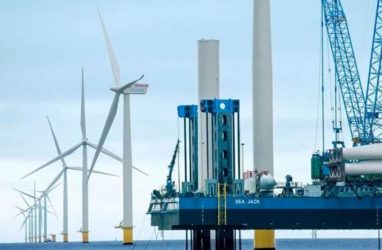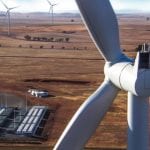Feed aggregator
‘Anecdotal evidence’ that CBAM is spurring carbon pricing initiatives worldwide, EU official says
Southeast Asia “woefully” behind in race to meet near-term transition goals -report
China updates emission factors for domestic power sector to strengthen carbon accounting
There’s no such thing as a benign beef farm – so beware the ‘eco-friendly’ new film straight out of a storybook | George Monbiot
A highly misleading new documentary claims soil carbon storage can redeem the livestock industry – it’s all so much ‘moo-woo’
We draw our moral lines in arbitrary places. We might believe we’re guided only by universal values and proven facts, but often we’re swayed by deep themes of which we might be unaware. In particular, we tend to associate the imagery and sensations of our earliest childhood with what is good and right. When we see something that chimes with them, we are powerfully drawn to it and attach moral value to it.
This results from a combination of two factors: finding safety and comfort in the familiar, and what psychologists call “the primacy effect” – the first thing we hear about a topic is the one we tend to recall and accept. These tendencies contribute to the illusory truth effect: what is familiar is judged to be true. We go to war for such illusory truths, and sacrifice our lives to them.
Continue reading...Exploring why we photograph animals – in pictures
A new collection of wildlife photography aims to help understand why people have photographed animals at different points in history and what it means in the present. Huw Lewis-Jones explores the animal in photography through the work of more than 100 photographers in Why We Photograph Animals, supporting the images with thematic essays to provide historical context
- Photography on display at the Cheltenham science festival 4-9 June 2024
Former Xpansiv, ICAP carbon market stalwarts team up to launch new trading firm
Activist capital fund lobs merger bid at Australian carbon project developer
“Immense energy in a compact space:” CATL unveils high density, “nil degradation” battery packs
The post “Immense energy in a compact space:” CATL unveils high density, “nil degradation” battery packs appeared first on RenewEconomy.
SwitchedOn Podcast: Labor’s plan to cut household energy bills
The post SwitchedOn Podcast: Labor’s plan to cut household energy bills appeared first on RenewEconomy.
Can an offshore wind zone be un-declared? Consultation opens on rules for giant turbines
The post Can an offshore wind zone be un-declared? Consultation opens on rules for giant turbines appeared first on RenewEconomy.
“Legislate it:” Tesla calls for CIS certainty as energy incumbents push for gas and fixed payments
The post “Legislate it:” Tesla calls for CIS certainty as energy incumbents push for gas and fixed payments appeared first on RenewEconomy.
Australia now has a $70 ‘shadow price’ on carbon emissions. Here’s why we won’t see a real price any time soon
Chiltern off-grid festival hits back at Sky News’ latest slap down of renewable tech
The post Chiltern off-grid festival hits back at Sky News’ latest slap down of renewable tech appeared first on RenewEconomy.
AU Market: Vast sum of ACCU holdings leads ANZ to downgrade price forecast
Debt swaps could funnel more than $100 bln to nature and climate, says NGO
What if whales took us to court? A move to grant them legal personhood would include the right to sue
The big dry: forests and shrublands are dying in parched Western Australia
‘We found 700 different species’: astonishing array of wildlife discovered in Cambodia mangroves
Hairy-nosed otters and cats that catch fish are among the startling diversity of creatures making their home in threatened habitats
One of the most comprehensive biodiversity surveys ever carried out in a mangrove forest has revealed that an astonishing array of wildlife makes its home in these key, threatened habitats.
Hundreds of species – from bats to birds and fish to insects – were identified during the study of the Peam Krasop sanctuary and the adjacent Koh Kapik Ramsar reserve in Cambodia. Hairy-nosed otters, smooth-coated otters, large-spotted civets, long-tailed macaques and fishing cats, as well a wide range of bat species, were among the residents recorded by the survey, which was funded by the conservation group Fauna & Flora International. The variety of wildlife has staggered biologists.
Continue reading...‘Grownup’ leaders are pushing us towards catastrophe, says former US climate chief
Paris agreement negotiator Todd Stern attacks premiers who say that decarbonisation programmes are unrealistic and should be slowed down
Political leaders who present themselves as “grownups” while slowing the pace of climate action are pushing the world towards deeper catastrophe, a former US environment chief has warned.
“We are slowed down by those who think of themselves as grownups and believe decarbonisation at the speed the climate community calls for is unrealistic,” said Todd Stern, who served as a special envoy for climate change under Barack Obama, and helped negotiate the 2015 Paris agreement.
Continue reading...Jail for holding a placard? Protest over the climate crisis is being brutally suppressed | Natasha Walter
The legal repression of activism has been fast and frightening, yet it won’t make protesters disappear and only sows division
Years ago, when Dr Sarah Benn recognised the scale of the climate crisis, she made sure that she was doing all the right things. She recycled, she went vegan, she stopped flying, she voted Green, she signed petitions. It was because she didn’t see real change happening, despite doing all those things, that she then went further. She glued her hand to a building. She sat down in front of an oil terminal. And she stood on a grass verge with a handwritten sign, saying, “Stop New Oil”.
Benn’s story will be pretty familiar to anyone with a passing interest in the current wave of climate protest. This wave grew out of deep frustration with existing avenues for change. And it did feel, for a time, as if these protests might be a catalyst for the wider shift that so many people recognised was urgently needed. The marches and sit-downs sparked so much sympathy and curiosity, even with politicians from Michael Gove to Dawn Butler. I remember walking along a street on an Extinction Rebellion march in 2019 and people were cheering from their windows. A big part of all the early protests was outreach, with protesters talking to people on the streets, in communities and workplaces, and finding eager responses.
Do you have an opinion on the issues raised in this article? If you would like to submit a letter of up to 250 words to be considered for publication, email it to us at observer.letters@observer.co.uk
Continue reading...







